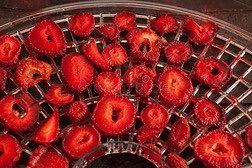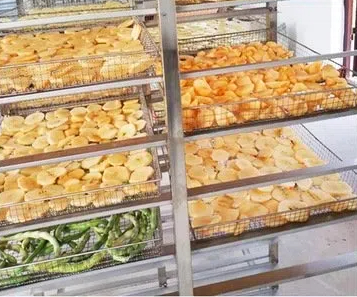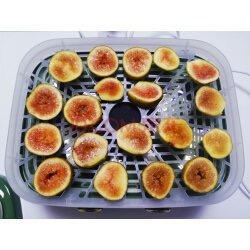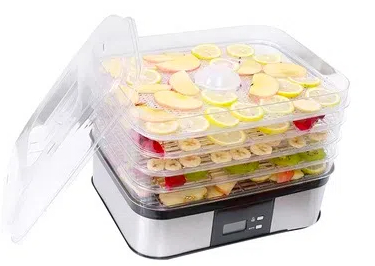
Content Menu
● How Heat Pump Dryers Work
● Advantages of Heat Pump Dryers
● Disadvantages of Heat Pump Dryers
● Applications in Food Drying
● Benefits of Using Heat Pump Technology for Food Drying
● Comparative Analysis: Heat Pump vs. Traditional Dryers
● Considerations When Choosing a Heat Pump Dryer
● Conclusion
● FAQ
>> 1. What is a heat pump dryer?
>> 2. Are heat pump dryers worth the investment?
>> 3. How long does it take to dry clothes in a heat pump dryer?
>> 4. Can I use a heat pump dryer for food dehydration?
>> 5. What maintenance do heat pump dryers require?
Heat pump dryers are becoming increasingly popular as an energy-efficient alternative to traditional dryers. They utilize advanced technology to recycle air, making them a more sustainable choice for drying clothes. In this article, we will explore the advantages and disadvantages of heat pump dryers, particularly in the context of food drying applications.

How Heat Pump Dryers Work
Heat pump dryers operate using a closed-loop system that recirculates air. Unlike conventional dryers that vent hot air outside, heat pump dryers draw in air from the surrounding environment, heat it, and then circulate it through the drum where the clothes are dried. The moisture-laden air is then passed through a heat exchanger, where the moisture is condensed into water and collected, allowing the dry air to be reheated and sent back into the drum. This process not only conserves energy but also reduces humidity levels in the home.
Advantages of Heat Pump Dryers
- Energy Efficiency: One of the most significant benefits of heat pump dryers is their energy efficiency. They can use up to 28% less energy compared to traditional vented dryers, leading to substantial savings on electricity bills.
- Gentler on Fabrics: Heat pump dryers operate at lower temperatures, which is gentler on clothes and helps maintain their quality over time. This is particularly beneficial for delicate fabrics that may be damaged by high heat.
- Flexible Installation: Since they do not require external venting, heat pump dryers can be installed in various locations within a home, including small spaces or apartments where traditional vented dryers may not fit.
- Eco-Friendly: By reducing energy consumption and minimizing carbon footprints, heat pump dryers are a more environmentally friendly option for drying clothes.
- Reduced Risk of Mold: Unlike traditional dryers that expel hot, moist air outside, heat pump dryers condense moisture internally. This reduces the risk of mold growth associated with humid environments.
Disadvantages of Heat Pump Dryers
- Longer Drying Times: One of the main drawbacks is that heat pump dryers generally take longer to dry clothes compared to conventional models. The lower drying temperatures mean that cycles can be extended by 15 to 30 minutes.
- Higher Initial Cost: Heat pump dryers tend to be more expensive upfront than traditional models. While they save money in energy costs over time, the initial investment can be a barrier for some consumers.
- Smaller Capacity: Many heat pump dryer models have smaller drum capacities compared to traditional dryers. This might not be suitable for larger households or those who do frequent laundry loads.
- Maintenance Requirements: Regular maintenance is essential for optimal performance. Filters need to be cleaned frequently, and some models may require periodic cleaning of internal components to prevent lint buildup.
- Potential for Mold Growth: While they reduce humidity in the home, if water from condensation leaks or if the unit is not maintained properly, it can lead to mold issues inside the dryer.

Applications in Food Drying
Heat pump technology is also applicable in food dehydration processes. Food dehydrators that utilize heat pump technology can effectively remove moisture from fruits, vegetables, and meats while preserving nutrients and flavors better than traditional methods.
Benefits of Using Heat Pump Technology for Food Drying
- Energy Efficiency: Similar to clothing drying, food dehydrators with heat pumps consume less energy due to their efficient moisture removal process.
- Nutrient Preservation: The gentle drying process at lower temperatures helps retain essential nutrients and flavors in food items.
- Versatility: Heat pump food dehydrators can handle a variety of foods including herbs, fruits, vegetables, and even meats without compromising quality.
- Consistent Results: Heat pump technology allows for uniform drying across different types of food products. This consistency ensures that all items reach the desired level of dryness without over-drying or under-drying.
- Reduced Risk of Spoilage: By effectively removing moisture from food items at controlled temperatures, heat pump dehydrators minimize the risk of spoilage due to microbial growth.
Comparative Analysis: Heat Pump vs. Traditional Dryers
To better understand the advantages and disadvantages of heat pump dryers, it's helpful to compare them directly with traditional vented dryers:
| Feature | Heat Pump Dryer | Traditional Dryer |
| Energy Consumption | Lower (up to 28% less) | Higher |
| Drying Temperature | Lower (gentler on fabrics) | Higher (can damage delicate fabrics) |
| Installation | Flexible (no venting required) | Requires external venting |
| Initial Cost | Higher upfront cost | Generally lower upfront cost |
| Drying Time | Longer (15-30 minutes more) | Shorter |
| Maintenance | Requires regular filter cleaning | Less frequent maintenance needed |
Considerations When Choosing a Heat Pump Dryer
When considering whether a heat pump dryer is right for you or your business needs (especially in food processing), there are several factors to keep in mind:
- Space Availability: If you have limited space or live in an apartment where external venting is not possible, a heat pump dryer may be your best option.
- Laundry Habits: If you frequently do large loads of laundry or have a large family, consider whether the longer drying times will fit into your schedule.
- Budget: Evaluate both your initial investment budget and your long-term savings potential when considering energy costs over time.
- Type of Fabrics: If you often dry delicate fabrics or garments that require special care, a heat pump dryer's gentler drying method could be advantageous.
Conclusion
Heat pump dryers offer numerous advantages over conventional drying methods, particularly in terms of energy efficiency and fabric care. While they come with certain drawbacks such as longer drying times and higher initial costs, their benefits make them an attractive option for many consumers looking to reduce their environmental impact and save on energy bills.
In summary:
- Advantages: Energy efficiency, gentler on fabrics, flexible installation options, eco-friendly benefits.
- Disadvantages: Longer drying times, higher upfront costs, smaller capacity options, maintenance needs.
As technology continues to evolve, we can expect improvements in capacity and efficiency in heat pump dryers and food dehydrators alike. The integration of smart technology could further enhance user experience by providing real-time monitoring and control over drying processes.

FAQ
1. What is a heat pump dryer?
A heat pump dryer is an appliance that dries clothes using a closed-loop system that recirculates air rather than venting it outside. It heats air internally and condenses moisture into water without releasing humid air into your home.
2. Are heat pump dryers worth the investment?
Yes! Despite their higher initial cost, heat pump dryers save money over time through reduced energy consumption and are gentler on fabrics.
3. How long does it take to dry clothes in a heat pump dryer?
Typically, it takes about 15 to 30 minutes longer than conventional dryers due to lower operating temperatures.
4. Can I use a heat pump dryer for food dehydration?
Yes! Heat pump technology is effective for food dehydration as it preserves nutrients while efficiently removing moisture from various foods.
5. What maintenance do heat pump dryers require?
Regular cleaning of filters and internal components is necessary to ensure optimal performance and prevent issues such as mold growth or reduced drying efficiency.
The total word count for this article is 1,838 words.












